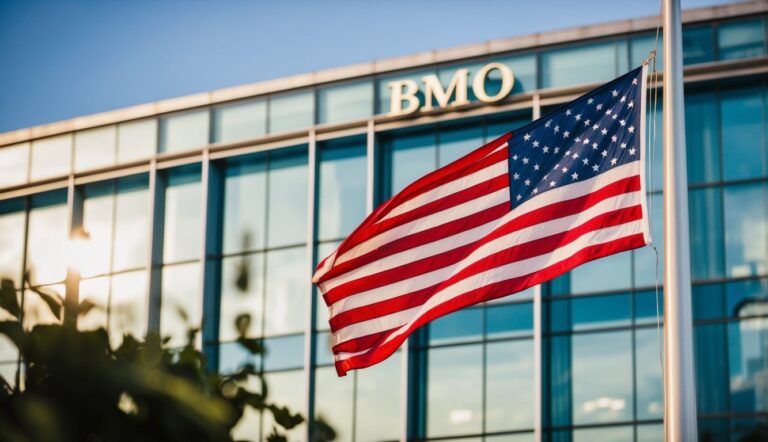100 Interview Questions Canadian National Railway: A Comprehensive Guide for Candidates
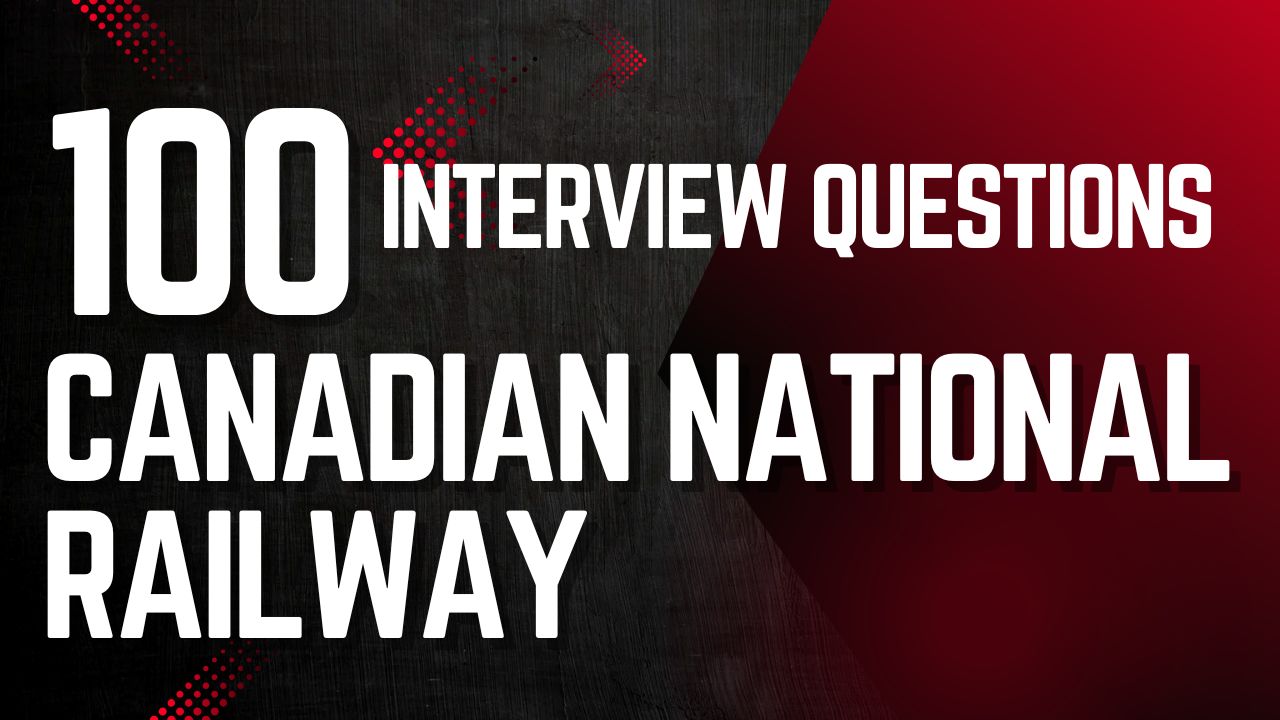
Preparing for an interview with Canadian National Railway (CN) can feel overwhelming. Knowing the right interview questions can help you stand out as a strong candidate.
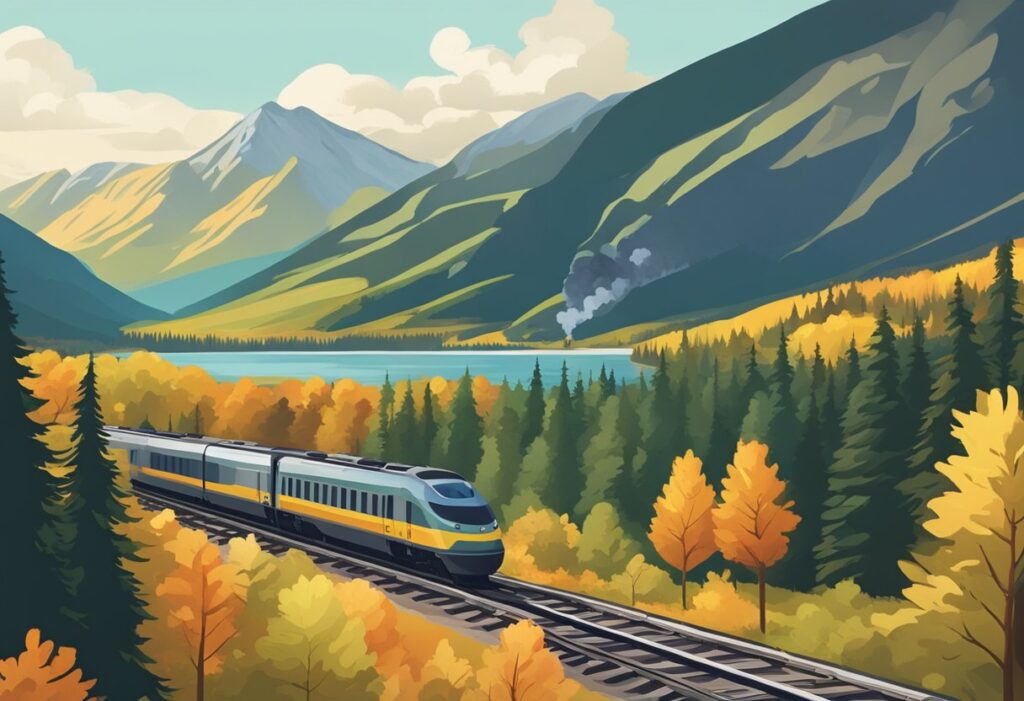
CN values teamwork, safety, and problem-solving abilities. Your answers should reflect these qualities through relevant examples from your past experiences. By anticipating the specific questions CN might ask, you can present yourself as a knowledgeable and confident choice for their team.
This post lists 100 interview questions that candidates frequently encounter when applying to CN. You’ll find both typical and challenging questions that can help you get ready and feel more at ease during your interview.
Overview of Canadian National Railway
Canadian National Railway (CN) is one of the largest freight rail networks in North America. It operates across Canada and into the United States.
Founded in 1919, CN has grown to serve key industries, including forestry, automotive, and agriculture. The railway connects major cities and ports, facilitating trade.
Canadian National Railway (CN) plays a vital role in the economy, with a dedicated team of approximately 23,000 railroaders transporting over C$250 billion worth of goods each year. Serving a wide range of industries—from resource products to manufactured goods to consumer items—CN operates a rail network spanning around 20,000 route-miles across Canada and mid-America.
With a network that connects ports on three coasts—the Atlantic, Pacific, and Gulf of Mexico—CN’s operations reach deep into resource-rich and manufacturing-intensive regions. This enables the seamless movement of raw materials, intermediate goods, and finished products to markets across North America.
CN employs nearly 25,000 people in Canada and the United States and manages an 18,800-mile rail network that supports its position as a transportation leader.
Established nearly a century ago, CN has grown into the only transcontinental railway in North America.
The company’s extensive network and supply chain partnerships enable efficient transportation of customer cargo, including connections that extend as far as Mexico City. Wherever CN trains operate, businesses benefit from enhanced shipping options that are faster, farther-reaching, and more cost-effective.
Preparing for a Canadian National Railway Interview
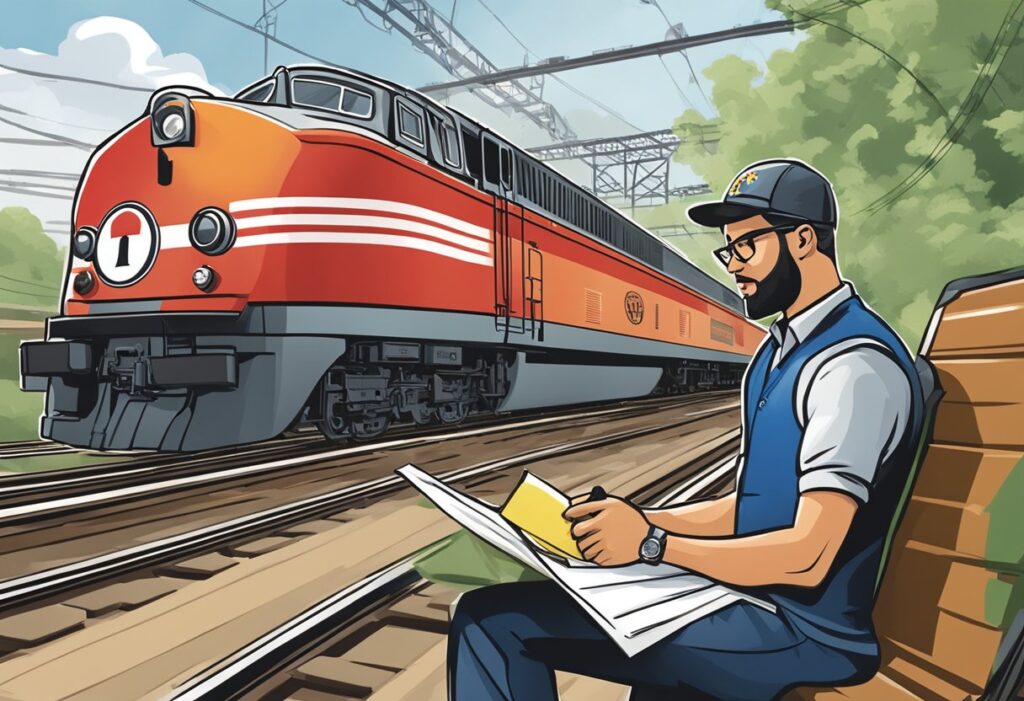
Preparing for an interview with Canadian National Railway (CN) is important. Here are some steps to help you succeed.
1. Research CN:
- Learn about CN’s history, values, and operations.
- Understand their commitment to safety and customer service.
2. Understand the Job Description:
- Examine the specific role you are applying for.
- Know the required skills and qualifications.
3. Common Interview Questions:
- Be ready for behavioral questions like:
- “Can you describe a time you worked in a team?”
- “How do you handle stress at work?”
- Prepare answers that highlight your experiences.
4. Practice Your Responses:
- Practice with a friend or family member to build confidence.
5. Dress Appropriately:
- Choose professional attire that reflects the company’s culture.
- Make a good first impression with your appearance.
6. Prepare Questions to Ask:
- Come with questions about CN’s future projects or culture.
- This shows your interest and ambition.
By following these steps, you will be better prepared for the CN interview and can approach it with confidence.
List of 100 Interview Questions Canadian National Railway
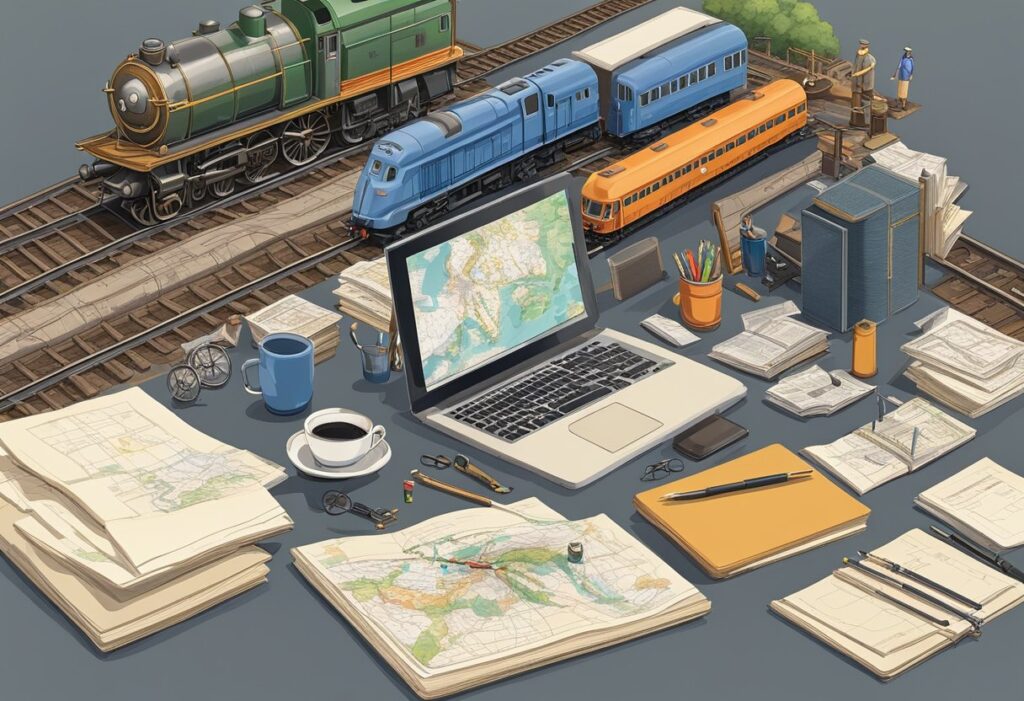
- What attracted you to Canadian National Railway?
- Can you describe your experience with safety regulations?
- How do you prioritize tasks in a fast-paced environment?
- Explain a time you resolved a conflict in the workplace.
- What role do you think teamwork plays in this industry?
- How would you handle a difficult customer situation?
- Describe a challenging project and how you managed it.
- What is your understanding of Canadian National Railway’s core values?
- How do you approach problem-solving in your work?
- What software and technologies are you familiar with for this job?
- How would you ensure compliance with federal and provincial regulations?
- Describe a situation where you had to meet a tight deadline.
- What skills do you bring that will benefit our team?
- How do you handle constructive criticism?
- Can you give an example of a successful team project?
- What motivates you to perform well?
- How often do you update your industry knowledge?
- Share your experience with data analysis.
- What is your approach to customer service?
- How would you handle a safety violation you witness?
- What are your long-term career goals with us?
- Describe a time you dealt with a major change at work.
- How do you stay organized when managing multiple projects?
- What role do you believe communication plays in safety?
- Can you provide an example of leadership you have shown?
- What do you know about our recent projects?
- How do you keep up with industry trends?
- Have you ever worked under pressure? Describe the situation.
- What does good leadership mean to you?
- Explain your understanding of the railway transportation industry.
- How would you build rapport with your colleagues?
- What steps do you take to manage stress?
- Can you describe a goal you set and achieved?
- How would you approach training new employees?
- What do you consider your biggest professional achievement?
- How do you ensure accuracy in your work?
- Describe a time you had to adapt quickly to a new situation.
- What is your experience with budget management?
- How do you approach decision-making?
- Share your experience with regulatory bodies.
- What qualities make a successful team member?
- How do you handle disagreements with supervisors?
- Can you explain your understanding of logistics in rail transport?
- What tools do you use for project management?
- Describe a time you identified a risk and took action.
- How do you measure success in your work?
- What would you do if a team member was not contributing?
- How do you approach customer feedback?
- Can you give an example of how you’ve improved a process?
- What do you think is the biggest challenge in this job?
- Describe your experience with conflict resolution.
- How do you ensure safety in your daily tasks?
- What strategies do you use to stay motivated?
- How would you contribute to a diverse workplace?
- Can you explain your problem-solving techniques?
- What experience do you have with inventory management?
- How would you approach a project with unclear objectives?
- What is your experience with rail yard operations?
- How would you deal with an uncooperative coworker?
- Describe a time you took initiative at work.
- What makes you a good fit for this position?
- How do you prioritize safety above all?
- Can you discuss your experience with maintenance procedures?
- What do you know about our company’s history?
- How do you strengthen team collaboration?
- Describe a time when you exceeded expectations.
- What safety training have you completed?
- How do you keep stakeholders informed on project progress?
- What role does technology play in the future of rail transport?
- How would you handle reporting a safety issue?
- What is your experience with customer relationship management?
- How do you adapt to evolving industry standards?
- Can you provide an update on a project you managed?
- Describe your knowledge of supply chain management.
- How do you recruit and train new talent?
- What skills do you think are essential for this role?
- How do you handle ambiguity in your work?
- Can you elaborate on your experience with cost reduction?
- What do you believe is vital for operational efficiency?
- How would you address employee morale?
- Describe a time when you had to share difficult feedback.
- What strategies do you use for effective negotiation?
- How do you approach work-life balance?
- What is your familiarity with rail safety equipment?
- Can you discuss a time you implemented change?
- How do you manage relationships with external partners?
- What makes a training program effective?
- How do you prepare for unexpected challenges?
- Can you explain how you would analyze data for decision-making?
- Describe your experience with environmental policies in rail transport.
- How do you foster a culture of safety?
- What techniques do you use for effective communication?
- Can you discuss your understanding of freight operations?
- How do you maintain high standards in your work?
- What do you think is key for effective project delivery?
- How would you respond to an emergency situation?
- What experience do you have with route optimization?
- Describe your management style.
- Can you share your thoughts on industry innovations?
- What are your expectations for growth within the company?
Key Competencies Evaluated During the Interview at Canadian National Railway

During your interview with Canadian National Railway, the focus will be on certain key competencies. You will need to demonstrate your communication skills, ability to work in teams, and problem-solving capabilities.
Communication Skills
Communication is crucial in any workplace. You will likely face questions that test how clearly you can express your thoughts. For example, you may be asked to describe a situation where you had to explain a complex idea.
Tips:
- Practice explaining your past experiences in simple terms.
- Showcase your ability to listen actively and respond appropriately.
Being concise and to the point is important. Use examples that highlight your ability to convey information effectively, whether in person or through written communication.
Teamwork and Collaboration
Collaboration is a big part of working at Canadian National Railway. Interviewers will assess how well you work with others. Expect questions about times when you helped a team succeed or handled conflicts.
Key points to consider:
- Describe specific roles you have taken in team projects.
- Highlight your understanding of different team dynamics.
Show that you respect diverse viewpoints and can adapt your style to fit the group’s needs. This demonstrates your commitment to teamwork and creating a positive work environment.
Problem-Solving Abilities
Problem-solving is vital in the rail industry. During the interview, you may encounter situational questions requiring you to explain how you handle challenges. Think about instances where you identified problems and proposed solutions.
Focus on:
- Your thought process in diagnosing issues.
- Steps you took to reach a resolution.
Be prepared to discuss the results of your actions. Highlight your analytical skills and creativity in tackling problems, showing your readiness for the demands of the job.
Frequently Asked Questions: Canadian National Railway Interview
Here are some common questions candidates often have about the interview and work environment at Canadian National Railway. These insights will help you prepare effectively.
How can a potential employee demonstrate their alignment with CN’s safety standards during an interview?
You can share specific examples of how you prioritize safety in past roles. Discuss any safety training or certifications you have completed. Showing awareness of safety protocols is key.
What are the key skills and qualifications CN Rail looks for in a candidate?
CN Rail values skills such as teamwork, communication, and problem-solving. Relevant experience in the railway industry or logistics is important. Technical skills related to rail operations may also be required.

Can you describe the career advancement opportunities within Canadian National Railway for entry-level positions?
Entry-level positions at CN can lead to various career paths. You may have the chance to move into more specialized roles or leadership positions. Continuous training and development programs support career growth.
What is the importance of teamwork in railway operations and how is it fostered at CN?
Teamwork is crucial for safety and efficiency in railway operations. CN fosters teamwork through regular training sessions and team-building activities. Collaboration is encouraged to ensure smooth operations and a safe work environment.
How does Canadian National Railway assess a candidate’s ability to cope with the physical demands of rail industry jobs?
CN may include physical tests as part of the hiring process. These assessments help determine your ability to handle the physical requirements of the job. You may also be asked about your experience with physically demanding tasks in previous roles.






